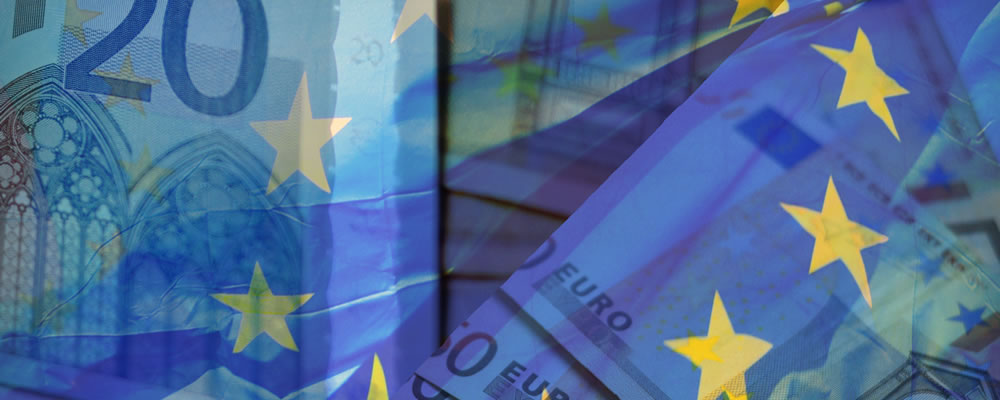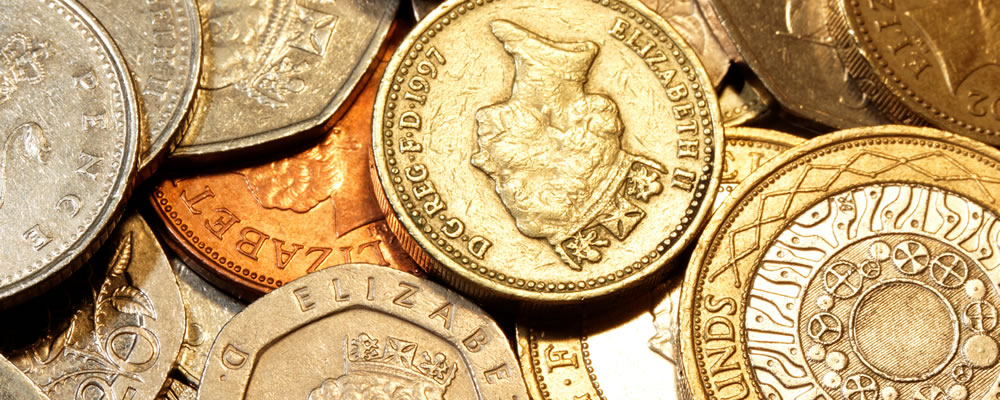Pound exchange rates are rebounding after Friday’s weakness, helped higher by a Euro and US Dollar softened by the week’s coming key US interest rate decision. The Fed last adjusted interest rates in December 2015 and while a hike is unlikely to occur at this week’s gathering, it can’t be completely ruled out. The Federal Reserve may also opt to take a hawkish stance on the issue and indicate that rates will be raised before the close of 2016 – a prospect which would be supportive of US Dollar (USD) exchange rates.
- GBP Bullish on Correctional Rally – Pound recovering after Friday’s weakness
- EUR Slides as Markets Look to Fed – Thin trading volume keeps Euro on the decline
- USD Weakens Ahead of FOMC Meeting – Little prospect of rate hike weighs on US Dollar
- Exchange Rate Forecast – FOMC meeting could keep EUR, USD weak; GBP to advance
Multiple headwinds for the Pound are largely being ignored today as weak Sterling has created an attractive buying opportunity, although concerns raised today could weigh on the long-term outlook for the Pound.
Frozen Markets Ahead of Fed Decision Keeps Pound Stable despite Borrowing Figures
14.27, 21/09/2016: The UK’s latest borrowing figures have revealed a huge deficit, as expected. The -10.1 billion shortfall suggests that Chancellor Philip Hammond will struggle to meet this year’s deficit reduction target. The current level of UK government debt also indicates that the upcoming autumn Budget could be limited in terms of new spending initiatives.
GBP, EUR, USD Weak as Federal Reserve Interest Rate Decision Approaches
09.00, 21/09/2016: The forex markets are largely paralyzed today ahead of the Federal Reserve’s interest rate decision tonight. Also keeping the Pound in check is the imminent release of UK borrowing figures, forecast to crash back into deficit.
More Signs of Weak German Inflation Fail to Suppress Euro Gains
08.45, 20/09/2016: Inflationary pressure in Germany remained low in August, the latest producer prices data suggests. The decline in factory gate prices slowed from -2% to -1.6%, but monthly figures revealed an unexpected -0.1% decline. EUR GBP and EUR USD exchange rates are making gains in the region of 0.2%, however.
17.00, 20/09/2016: Weak US housing data has further weighed on US Dollar sentiment today, although it will have no bearing on the Fed’s interest rate decision tomorrow. The rate of housing starts collapsed, falling -5.8% on the month in August to 1142k.
Pound Exchange Rate Rallies; Correctional Trading Overpowers Potential Loss of Financial Passporting Rights
Despite the lack of any notable economic data from the UK on the calendar today, the Pound is surging versus the Euro and the US Dollar. A correctional rally, caused by the strong buying opportunity created after significant weakening on Friday and delayed by the weekend break, is helping to keep the Pound on the uptrend in the face of multiple headwinds.
The day’s only UK data of note – the Rightmove house prices report for September – was released at midnight and showed a solid return to growth. Prices grew 0.7% on the month after the previous -1.2% decline, while on the year price growth weakened just ten basis points to 4%, pointing to a resilient property market.
News that the weaker Pound is beginning to have a positive effect on sectors of the UK economy such as agriculture and manufacturing has also helped boost GBP higher. Especially uplifting were comments from Tata Steel that weak Sterling would help its exports; it wasn’t long ago that the flagging producer was threatening to spark the collapse of the UK’s entire steel industry.
Furthermore, a new survey of Scottish voters found that the Brexit decision has had very little impact upon the desire for independence. Support for a break away from the UK has increased just 2% since the Scottish referendum, leaving it still -3% away from a majority. This has helped to allay fears that Scotland could essentially trigger the disintegration of the UK by voting to leave.
However, there are multiple headwinds present as well. Jens Weidmann, German central bank Chief, has warned that the UK could lose its financial passporting rights should the government opt for a ‘hard Brexit’ option, which would see the UK leave the European Economic Area (EEA) as well as the single market. Financial services posted a trade surplus in 2014 of £58 billion, so a suspension of automatic passporting rights would likely see the UK losing its status as ‘the gateway to Europe’, as it is seen by many major developed nations. The current rules allow any financial company registered in one EU country to operate across the whole of Europe without the need for individual licenses.
Also dragging on Pound sentiment is the fact that a new survey shows business sentiment tumbled to its lowest level in four years following the Brexit vote. Although it was conducted before the Bank of England (BoE) loosened monetary policy, lower interest rates had been anticipated by the majority of respondents. The results indicated businesses were anticipating a gradual slowdown in the economy, which tallies with updated assessments from economists in the wake of a strong post-referendum rebound, seen largely in surprise returns to growth for all UK PMIs bar the construction index.
All Eyes on US Federal Reserve Meeting; Euro Exchange Rates Slump in Thin Trading Volume

With market attention firmly on the US and Japan (the Bank of Japan is also holding a key policy meeting), the forex markets are seeing thin trading volume. Investors don’t want to position themselves until the outcomes of the week’s key policy meetings are known, meaning there is a lack of buying activity to balance out Euro sell offs and keep the exchange rate buoyant.
One of the reasons markets are averse to the Euro today is that a US rate hike would actually help the currency bloc. A few months ago the idea of widening policy divergence between the Fed and the European Central Bank (ECB) would have significantly weakened the Euro. However, because the ECB is feared by many to be nearing the limits of its current policy tools, a US Dollar strengthened by rising interest rates is seen to be beneficial to the ECB.
This is because the Euro moves inversely to the US Dollar, due to the fact that EUR USD is the most commonly traded currency pairing on the market. Tighter US monetary policy will strengthen the ‘Greenback’, therefore weakening the common currency. This should help to boost Eurozone inflation without the ECB having to implement lower interest rates or expand quantitative easing. Dwindling prospects of a rate hike in the September meeting are consequently keeping the odds of more ECB stimulus high, making the Euro less attractive to investors.
Also helping the single unit lower is a surprisingly large fall in the current account surplus, with the seasonally-adjusted balance dropping from an upwardly-revised €29.5 billion to €21 billion in July.
US Dollar Exchange Rates Fall as Federal Open Market Committee (FOMC) Policy Meeting Approaches
The approach of this week’s monetary policy meeting from the Federal Reserve is keeping the US Dollar in low demand today. This is because market expectations are firmly skewed towards a policy freeze; the Fed Funds futures market shows that investors expect just a 12% chance of tighter monetary policy, with 88% of the market expecting policy to remain within the 25-50 basis point range.
Bank of America Merrill Lynch believes that the Fed will want to set the stage for a December rate hike (markets have as-good-as written off any changes in November due to the volatility that will be generated by the presidential elections);
‘While the FOMC is unlikely to deliver a rate hike, the committee will have to communicate that a hike is still likely before the end of the year. This means that the communication will have to sound cautiously hawkish, which is not an easy task.’
GBP EUR, GBP USD Exchange Rates Forecast to Remain Muted Ahead of FOMC Rate Decision
With little on the data calendar for the UK, Eurozone, or the US, market focus is likely to remain on Wednesday’s FOMC policy meeting. This could keep exchange rate movements muted and see the Pound able to advance against the languorous Euro and US Dollar.
Thin trading volume may exaggerate the impact of low-impact data, with tonight’s speech by the ECB’s Yves Mersch and tomorrow’s German producer price data for August potentially causing more volatility than usual.
GBP EUR, GBP USD Conversion Rates
The Pound Euro (GBP EUR) exchange rate is currently trading between 1.1654 and 1.1716, while the Euro Pound (EUR GBP) exchange rate is currently trading between 0.8533 and 0.8575.
The Pound US Dollar (GBP USD) exchange rate is currently trading between 1.3009 and 1.3075, while the US Dollar Pound (USD GBP) exchange rate is currently trading between 0.7649 and 0.7685.
The Euro US Dollar (EUR USD) exchange rate is currently trading between 1.1150 and 1.1173, while the US Dollar Euro (USD EUR) exchange rate is currently trading between 0.8947 and 0.8964.



